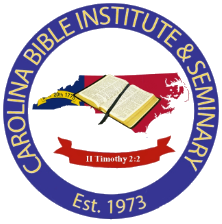PASTORAL THEOLOGY OVERVIEW
The “Pastoral Theology” course is a comprehensive exploration of the theological, practical, and ethical dimensions of pastoral ministry within a Christian context. Designed for those preparing for or currently engaged in pastoral roles, this course delves into the biblical foundations, pastoral care principles, and leadership skills essential for effective pastoral ministry. Through a blend of theoretical discussions, case studies, and practical exercises, students will be equipped to navigate the complexities of pastoral leadership with a focus on spiritual formation, counseling, and ethical decision-making.

Man reading bible.
The “Pastoral Theology” course aims to prepare students for the multifaceted role of pastoral leadership, providing them with the theological knowledge and practical skills necessary for effective and compassionate ministry within Christian congregations.
DETAILS
- Pastoral Reflection Papers:
- Write reflective papers on key theological and pastoral topics covered in the course, integrating personal insights and experiences.
- Pastoral Care Case Studies:
- Analyze and present case studies involving pastoral care scenarios, applying theoretical principles to real-life pastoral situations.
- Sermon Preparation and Delivery:
- Prepare and deliver sermons on selected biblical passages, demonstrating proficiency in crafting biblically grounded messages tailored to the spiritual needs of a congregation.
- Leadership Project:
- Develop a leadership project that addresses a specific organizational or administrative challenge within a church context, showcasing strategic thinking and planning skills.
- Ethical Dilemma Analysis:
- Engage in ethical dilemma analysis, exploring and resolving hypothetical pastoral ethical challenges, emphasizing ethical decision-making and accountability.
- Spiritual Formation Plan:
- Develop a spiritual formation plan for a church community, outlining strategies for fostering discipleship and spiritual growth among congregation members.
- Crisis Intervention Simulation:
- Participate in a crisis intervention simulation, applying crisis management and pastoral care skills to navigate a hypothetical crisis scenario within the church.
- Group Bible Study Facilitation:
- Facilitate a group Bible study session, demonstrating effective teaching and facilitation skills to engage participants in biblical exploration and discussion.
- Final Pastoral Project:
- Culminate the course with a final pastoral project, integrating knowledge and skills gained throughout the course. This project may include a comprehensive pastoral care plan, a sermon series, or a strategic leadership initiative.
- Class Participation and Discussion:
- Actively engage in class discussions, sharing insights, experiences, and reflections related to pastoral theology and its practical application.
- Pastoral Skills Assessment:
- Undergo a pastoral skills assessment, which may include role-playing scenarios, counseling simulations, or preaching evaluations to gauge practical pastoral competencies.
- Reflective Journals:
- Maintain reflective journals throughout the course, documenting personal and theological growth, insights gained, and challenges encountered in the process of studying pastoral theology.
These course requirements are designed to provide a holistic and practical learning experience, ensuring that students not only grasp theoretical concepts but also develop the necessary skills and competencies for effective pastoral ministry within Christian congregations.
CURRICULUM
- Biblical Foundations of Pastoral Ministry:
- Explore the biblical role of a pastor, examining key passages and principles that underpin pastoral leadership and shepherding within the Christian community.
- Pastoral Care and Counseling:
- Delve into the principles and practices of pastoral care, including counseling techniques, effective listening skills, and strategies for providing spiritual guidance in various pastoral scenarios.
- Preaching and Teaching in Pastoral Contexts:
- Develop skills in crafting and delivering biblically grounded sermons and teachings that address the spiritual needs of a congregation.
- Leadership and Administration in the Church:
- Examine the organizational and administrative aspects of pastoral ministry, covering topics such as church governance, team leadership, and strategic planning within a congregational context.
- Ethical Considerations in Pastoral Ministry:
- Discuss ethical challenges specific to pastoral roles, emphasizing integrity, confidentiality, and ethical decision-making in various pastoral situations.
- Spiritual Formation and Discipleship:
- Focus on the spiritual formation of individuals and the broader congregation, exploring discipleship models and practices that foster spiritual growth within the church community.
- Crisis Intervention and Conflict Resolution:
- Equip students with the skills to navigate crises and conflicts within the church, offering pastoral support and promoting reconciliation in challenging situations.
PREREQUISITES
- Introduction to Christian Ministry:
- Successful completion of an introductory course in Christian ministry to establish a foundational understanding of the broader context of pastoral work.
- Foundations of Theology:
- Proficiency in foundational theological principles to ensure a solid theological framework for pastoral decision-making and guidance.
- Biblical Studies:
- Background in biblical studies, including familiarity with key biblical passages and themes that form the basis of pastoral theology.
- Introduction to Counseling (Recommended):
- While not mandatory, a background in basic counseling principles can be beneficial for engaging with the pastoral care and counseling aspects of the course.
- Communication Skills:
- Proficiency in communication skills, both written and verbal, as effective communication is a critical aspect of pastoral ministry.
- Leadership Fundamentals:
- Familiarity with basic leadership principles to provide a foundation for discussions on leadership and administration in the pastoral context.
- Introduction to Ethics (Recommended):
- An understanding of ethical principles is recommended to facilitate discussions on ethical considerations in pastoral ministry.








